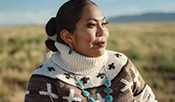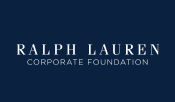Anchored in our enduring philosophy of timelessness, we are implementing circular principles and instilling cultural awareness practices into our design and development process. By designing with timelessness in mind from the start, we are enabling our products to live on responsibly.
Within Create with Intent, our focus areas include Integrated Circularity, Sustainable Materials, Responsible Design and Responsible Sourcing.
Integrated Circularity
We are designing products for circularity, extending the life of our products by connecting consumers to opportunities for recycling and investing in scalable innovation.
Sustainable Materials
Our products are designed to be timeless and worn for generations to come. With this in mind, we seek to increase the use of sustainable materials in ways that reduce environmental impact, protect biodiversity and animal welfare and improve the traceability of raw materials.
Responsible Design
We take seriously our obligation to use the histories, arts, crafts and cultures that inspire our designs and storytelling in a way that is culturally responsible and sustainable. We are on a journey to evolve our approach to a model built on collaboration, ensuring that our products and storytelling are inclusive of the diverse cultures and communities that inform and inspire us.
Responsible Sourcing
We are working to map our value chain and forge strong bonds with our suppliers, identify areas for improvement and support our suppliers as they implement our recommendations.
Case Study
Engagement with Native American and Indigenous Communities
We recognize that we must honor the Indigenous communities that so richly contribute to American culture and the cultures of many other countries. As a part of this work, we connect with Native American and Indigenous-focused organizations to apply greater cultural cognizance to our work and scale our community impact.
We recognize that we must honor the Indigenous communities that so richly contribute to American culture and the cultures of many other countries. As a part of this work, we connect with Native American and Indigenous-focused organizations to apply greater cultural cognizance to our work and scale our community impact.
In 2022, a delegation from Ralph Lauren attended the Southwestern Association for Indian Arts (SWAIA) annual art market in Santa Fe, New Mexico, to build on our understanding of Native perspectives and connect with Indigenous creatives and community leaders.
We also began working with Creative Futures Collective (CFC), an organization that empowers the next generation of creative leaders from disenfranchised or system-impacted communities, to provide an opportunity for mentorship, employment and exposure. We sponsored two CFC fellows to participate in SWAIA. Alongside mentorship support, we featured their journey in their own words and through their own lens via editorial stories on our consumer-facing RL Mag platform and our employee intranet. We are exploring additional opportunities to engage with CFC on talent recruitment and development on an ongoing basis.
Education, advocacy and access is a key pillar of our philanthropic work across the Company and the Ralph Lauren Corporate Foundation, and we remain dedicated to providing next-generation leaders with opportunities to access education. We continue to support scholarship programs via the American Indian College Fund and launched a two-year Master of Fine Arts scholarship at the Institute of American Indian Arts, aiming to support Native and Indigenous talent in creative fields of work.
Artist in Residence
At Ralph Lauren, we are putting cultural inclusivity at the center of our design process and our storytelling efforts — and collaborating with the communities that inspire us.
As part of this, we are launching our "Artist in Residence" program to invite artisans working with a variety of skillsets, mediums and materials to collaborate with Ralph Lauren’s design teams. We are particularly exploring artisans that specialize in traditional crafts such as weaving, silversmithing, beading, pottery, painting, etc. This is intended to be a mutually beneficial exchange of resources, talent and trade techniques. Learn how to apply to participate in the program below.
Case Study
Cradle to Cradle: Timeless, Luxury Cashmere
True luxury goes beyond beauty and quality – it takes into account how a product was made and how it will endure for years to come. Grounded in this philosophy, we created the industry’s first luxury Cradle to Cradle (C2C) Certified® cashmere sweater. Our C2C Certified® Gold Cashmere Sweater reimagines an iconic Ralph Lauren product. This first-of-its-kind luxury crewneck cashmere sweater is made to be worn, loved and live on responsibly for generations to come. It is also the first of five iconic Ralph Lauren products that we committed to have C2C Certified® by 2025.
True luxury goes beyond beauty and quality – it takes into account how a product was made and how it will endure for years to come. Grounded in this philosophy, we created the industry’s first luxury Cradle to Cradle (C2C) Certified® cashmere sweater. Our C2C Certified® Gold Cashmere Sweater reimagines an iconic Ralph Lauren product. This first-of-its-kind luxury crewneck cashmere sweater made to be worn, loved and live on responsibly for generations to come. It is also the first of five iconic Ralph Lauren products that we committed to have C2C Certified® by 2025.
The Cradle to Cradle Product Innovation Institute’s C2C certification program is the global standard for products that are safe, circular and responsibly made. Every component of the sweater has been certified, from the cashmere fiber to its rich dyes and iconic label made with organic cotton.
Developed as part of the C2C certification process, we launched a recycling program for 100% cashmere in partnership with Re-Verso, a leading textile production company that bridges science and technology to create a circular economy manufacturing system for high-quality wool and cashmere. The program, initially available in North America and Europe, allows consumers to request a prepaid mailing label at RalphLauren.com for their end-of-use cashmere product to be recycled.
See our 2023 Global Citizenship & Sustainability Report for more.
Case Study
Helping Farmers Transition to More Sustainable Practices
In 2022, building on the Company’s commitment to scale more sustainable farming practices, we became a member of the U.S. Cotton Trust Protocol (USCTP), echoing The Ralph Lauren Corporate Foundation’s existing support of the U.S. Regenerative Cotton Fund (USRCF). USCTP helps farmers transition to more sustainable cotton cultivation practices and enables growers to measure the environmental impacts of their operation to support continuous improvement.
In 2022, building on the Company’s commitment to scale more sustainable farming practices, we became a member of the U.S. Cotton Trust Protocol (USCTP), echoing The Ralph Lauren Corporate Foundation’s existing support of the U.S. Regenerative Cotton Fund (USRCF). USCTP helps farmers transition to more sustainable cotton cultivation practices and enables growers to measure the environmental impacts of their operation to support continuous improvement.
USCTP is the only farm-level, science-based program that provides quantifiable, verifiable goals in six key sustainability metrics including: land use, soil carbon, water management, soil loss, greenhouse gas emissions and energy efficiency, as well as article-level supply chain transparency. Our membership in USCTP is an important part of our efforts to build a more resilient cotton industry.
In 2022, USCTP was awarded funding for the U.S. Climate-Smart Cotton Program as part of the U.S. Department of Agriculture Partnership for Climate-Smart Commodities pilot projects. The multistakeholder initiative includes the Soil Health Institute, which The Ralph Lauren Corporate Foundation supports through the USRCF, as an implementing partner. This grant-funded project is focused on building markets for climate-smart cotton. It will provide technical and financial assistance to more than 1,000 U.S. cotton farmers to support the adoption of climate-smart practices on more than one million acres over the next five years, scaling the impact and reach of the work initiated through the USRCF.
For more information on USCTP, read their annual report. For more information on the USRCF partnership, see our 2023 Global Citizenship & Sustainability Report.




